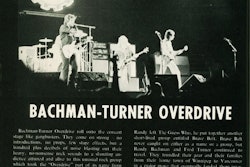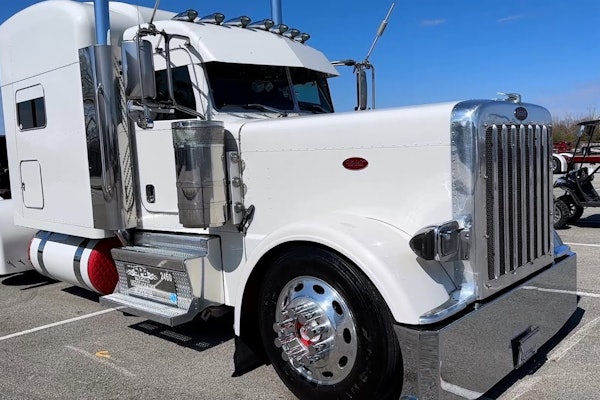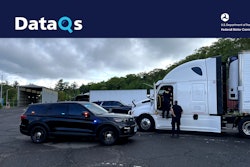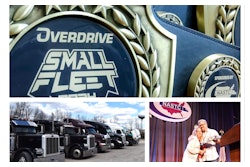Planning Ahead
Keeping a budget will help you track costs and save money on the road
Setting a budget alone won’t make you successful, but it will tell you how your business is performing. A budget will help guide you where you want and need to spend money. If nothing else, a budget might provide some financial discipline.
The time to start a budget is now. For an owner-operator, establishing a budget should precede going into business, advises Barry Sullivan, lead business consultant at financial services firm ATBS. “Oftentimes guys will get into a lease-purchase program or buy a truck and do a budget afterward,” he says, “which is the cart before the horse.”
Sullivan says a budget will demonstrate if a proposed business is likely to succeed. The budget will show whether the income is sufficient to support both the business side and expenses back home. If you’re the sole means of support, setting a budget is critical, he says.
Eric Cook of Peak Trucking Consultants says a budget provides a “roadmap of how their expenses compare to the income they can generate.” He says it should be prepared before you buy a truck to see whether the proposed venture makes financial sense. He recommends researching fuel costs where you’ll be running, potential revenue per mile and what truck payment you can afford.

Pat Musgrave, owner of TruckersAccountant.com, says a budget will show where you’re spending your money. “The budget is not there to say you can’t spend it,” he says. “It’s there to say, one, you have the money in case you need it, and, two, it guides you where you should be spending it.”
What to include
Sullivan says a budget doesn’t have to be complicated. You could set one up on a spreadsheet program on your computer or draw one up with a pencil and legal pad. “People don’t like the word budget,” Sullivan says. “That’s why it’s equally referred to [at ATBS] as a business plan.”
In a one-page budget, Sullivan says include fixed costs such as your truck payment and insurance, variable costs such as maintenance and fuel, and your personal expenses, such as mortgage or rent, credit card debt and child support. Determine your personal expenses on the road, such as meals, showers and daily incidentals. Musgrave says he has a trucker client who withdraws a daily stipend in advance to cover personal expenses between pay periods.
An essential on the expense side is a maintenance fund. Each period you should put a regular amount aside to cover maintenance costs large and small. If you don’t a big repair bill could knock you out of business or deeply into debt.
Musgrave says he has a client who faced a $6,000 repair bill and was fretting where he was going to get the money to pay it. The client was reminded he had a repair account and found out it had grown to over $14,000. “He wrote a check and he was back on the road,” he says.
Musgrave says everyone has a “soft spot,” a place they regularly spend money. He has a client who enjoys going to auto races weekly. “We put in $50 every week for his racing,” he says. “He knows he’s going to spend it, so we put it in the budget.”
A comprehensive budget will also include amounts for savings and retirement. You may not be able to set aside large sums for savings and retirement, but the discipline will pay off if you stick with it.
Cook adds that you should keep all of your expenses so you know what you’re spending, but don’t get bogged down in setting up excessive categories to track regularly. “Avoid getting too detailed so it’s not more cumbersome than helpful,” he says.
When to review
Musgrave says the budget should be based on how often you get paid or receive a settlement. The most common periods are weekly or bi-weekly.
Once you set a budget, track it for two to three months to compare targeted amounts with actual spending. You can make adjustments that fit your needs and then revisit the budget every six months or so.
The financial advisers say you should adjust your budget any time you have a significant change in business or personal overhead. If your pay-per-mile or percentage gets bumped up or down, a budget review is in order. “Each time you want to readjust what your break-even is,” Sullivan says. Cook adds that you might want to recalibrate if you go through a major truck expense, or if you have to replace your truck.
Sullivan is blunt in assessing the importance of a budget. “I think if you find those who didn’t make it as an owner-operator, a majority of them did not do a budget,” he says.
A budget isn’t only recommended for owner-operators. Cook says company drivers also will benefit. “A budget helps you to stay within your means and not overspend when you get a cash advance,” he says.
An alternative
Fred Lapp, a Sarasota, Fla.-based owner-operator leased to Bennett Motor Express, says he did a conventional budget for years. That experience led him to tracking figures that are meaningful to him.
Fred LappHe tracks loaded miles, deadhead miles, gross revenue per mile, fuel surcharges and net revenue. He also keeps an eye on his auxiliary power unit fuel consumption and per-diem expenses.
This year through early May he reported his gross revenue per mile at $1.91. Adding in fuel surcharges and extra revenue pushed his revenue per loaded mile to $2.24.
Last year, a down year for Lapp, provided almost $20,000 in net revenue in the first quarter, he says. For the year, monthly he averaged $10,555. This year through mid-May, he calculated revenue of more than $65,000.
Lapp, who has paid off his tractor and trailer, advises putting money aside for truck and trailer repairs. He assigns $250 from every load to a repair account.











